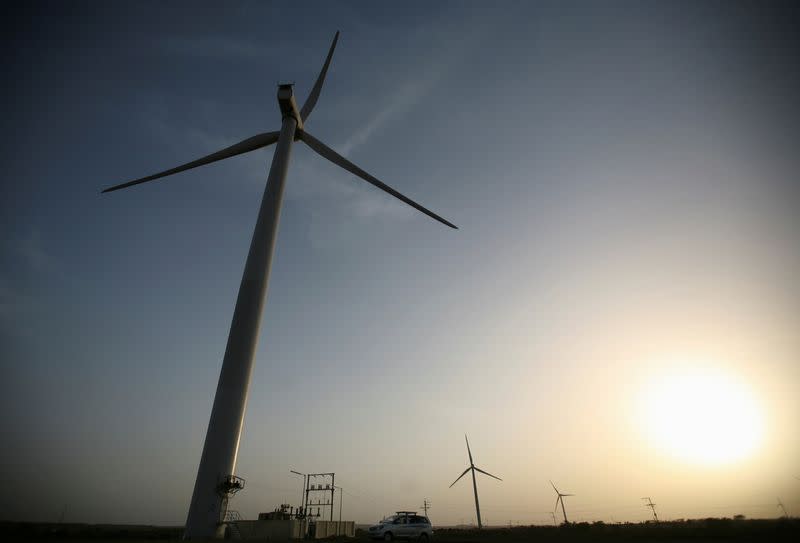India eyes cap on state transmission charges on green power purchase by industries

By Sarita Chaganti Singh
NEW DELHI (Reuters) - India on Wednesday proposed a cap on transmission charges levied on industrial and commercial consumers by states for purchase of power generated through renewable energy sources, according to a government order seen by Reuters.
The move is expected to boost renewable energy consumption and investments but is likely to face stiff resistance from states that could lose billions of rupees in revenue, according to industry sources.
Industrial and commercial consumers across the country have complained about various transmission charges levied by states on power purchase leading to higher costs.
Delhi, for instance, levies surcharges and levies worth 4.5 rupees per unit of electricity purchased by its industries from a plant in central India at 3 rupees per unit.
Power tariffs for industrial consumers are one of the highest in the world as they cross-subsidise farm and retail tariffs.
The cost increases further due to state levies like network access charges, wheeling charges, a fee for using the state transmission network, additional surcharge, and cross subsidy charges to protect agricultural consumers.
States impose such charges on their high- and prompt-paying industrial and commercial consumers to dissuade them from buying power from sources other than licensed retail companies.
The order, circulated by India's power ministry among stakeholders for comments, proposes an outer limit on network access charges and charges levied for industry use of the state network.
It also proposes eliminating the requirement for large renewable energy plants to obtain a transmission license for dedicated lines.
(Reporting by Sarita Chaganti Singh, writing by Tanvi Mehta, editing by Deepa Babington)

 Yahoo Finance
Yahoo Finance 